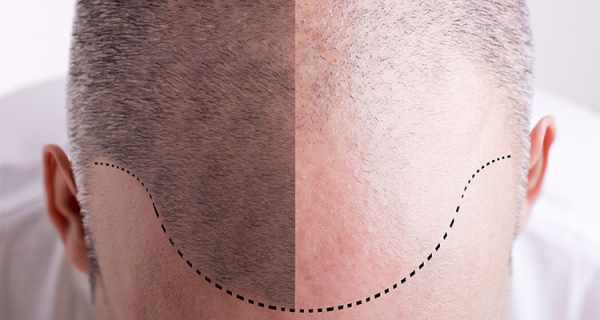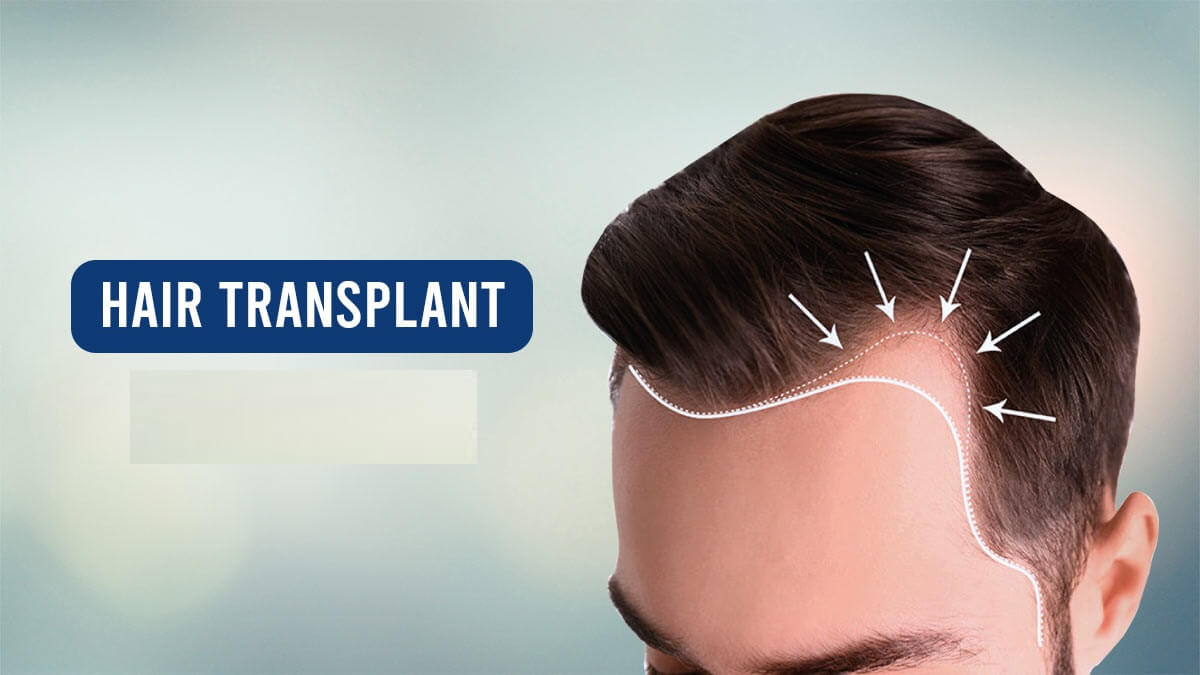A receding hairline is every man’s biggest problem, quite like hair thinning or hair loss is a nightmare for women. Some resign to it and move on. Some fight the signs. Some ignore it completely.
But what if we told you that your hair loss may be indicative of a heart condition?
Now that surely puts a twist around things, doesn’t it?
You then view any kind of hair loss in a more serious manner… After all matters of heart have to be taken seriously!
Baldness and hair loss may be more than just a cosmetic concern: it could be a marker for heart disease. This is especially true in men who also have other risk factors such as high blood pressure or cholesterol.
Recent research have indicated that male pattern baldness and premature greying in men under 40, are at risk of heart disease. In fact the studies say that men with these hair concerns are five times likelier to develop heart conditions! This is a risk factor higher than the one posed by obesity…
Today, we will help you understand the relationship between your hair and your heart, as simply as possible. We will keep off the complicated medical terminologies!
Role of blood circulation for hair health
Everything starts with the heart, right? Our circulatory system is what keeps our body alive and functioning. The heart is the engine behind it all. It distributes oxygenated blood, nutrients, water – all that we need, throughout our body, including our head.
Poor circulation will lead to issues everywhere! Limbs can become numb, hair follicles will die and one can end up with brain damage! The spectrum is wide here!
Let’s speak specifically of hair and scalp today.
If you are someone who follows our blogs, you know how the hair follicles are nourished by blood circulation. We have discussed this in various contexts, as you may have read. A healthy heart and proper blood circulation helps in transporting oxygen and nutrients to the hair follicles effectively. This nourishes the hair roots, promotes growth and helps reduce hair loss.
When the circulation is stimulated by various hair & scalp care routines, you ensure that the follicles receive the boost they need for hair growth. If the circulation is poor, your hair growth cycle will be disrupted and your scalps’ health is affected.
If you look closely at the anatomy of hair, at the base of the hair follicle is the papilla. This contains capillaries, or tiny blood vessels that nourish the cells. Good blood circulation ensures that these capillaries are well nourished. This is crucial for your hair’s health.
Blood flow to the scalp is a bit different from the rest. The blood circulation to your scalp, is the furthest. Simply put, it reaches your scalp after satisfying all other organs and parts! Further, it is not an ‘active’ part of the body and hence needs stimulation to get that circulation going well.
What happens when the circulation to the scalp is poor?
Insufficient or irregular blood circulation prevents the hair roots from receiving sufficient nutrients. These essential nutrients are the ones that are responsible for your hair’s strength and the life of your hair follicles. For a healthy scalp, proper blood circulation is vital.
Given the significance of blood circulation for your scalp, it may serve well to lend your heart & circulatory system a hand every now and then! Adopt hair care practices that involve stimulating the follicles and the blood vessels – like a periodical scalp massage, oiling, drinking adequate water (it plays a major role in blood circulation!), taking a cold shower, eating healthy and tricho treatments, to name a few.
We have discussed what the heart does for your hair. Now let’s discuss what your hair can tell you about your heart!
Hair loss and heart disease
Heart disease is typically associated with high blood pressure, cholesterol, obesity, increased body mass index (BMI),hyperglycemia,dyslipidemia, lack of physical activity and smoking. These are what can be termed the traditional risk factors for developing cardiovascular disorders.
However, more recent studies have revealed two more risk factors that people will not quite relate to heart diseases – male pattern baldness and premature greying!
It has been identified that a male who is under 40 and diagnosed with male pattern baldness or MPT and/or premature greying is five times more at risk to develop a heart/ coronary artery disease than others. This risk factor thus surpasses obesity as a marker! It is being said that these factors can indicate a biological age which may prove to be significant in determining the heart disease risk.
This would mean that if you are a male under 40 and you have premature greying and androgenic alopecia, then you need to monitor your heart heath and keep a check on your lifestyle in terms of diet, exercise, stress management, habits of smoking or consuming alcohol etc. Women who fall in this category with FPT are also suspected to be at risk, but there is no conclusive evidence documented on this.
As you may recall from our other pages, Androgenetic alopecia or MPT in men is characterized by hair loss in the frontal and vertex scalp area. This is seen more in men who are genetically predisposed to the condition and between the ages of 25 – 40. And it has a significant effect on quality of life. Unfortunately, lately, thanks to various factors there has been an increasing number of young males in their 20s are facing premature balding. And this is a direct indication of their risk towards heart conditions.
What heart conditions are we talking about here? Coronary artery disease may be described as the narrowing of the coronary arteries that supply blood and oxygen to the heart, slowing or even blocking the process. This can lead to chest pain, shortness of breath, other cardiac symptoms and heart attack.
What could be the reason for this increased risk?
One of the factors researchers have pointed out is the biological link between hair loss and heart disease involving elevated levels of male hormones. It is possible that the biological ageing is faster in certain individuals than others. Certain hormonal and genetic linkages, apart from the biological aging, and the pattern of cell apoptosis, may be defining how the process differs from one person to another. This gets reflected via hair changes such as the MPT or the premature greying. There is also speculation that this may be an indicator of DNA damage.
Premature greying and balding are connected to the aging of hair follicles, especially with follicles being a target for the male hormones, androgens, for instance testosterone – and the way each individual responds to the process – this in turn reflects their susceptibility to heart disease.
To draw these conclusions, studies have been conducted across in varied demographic groups and all have indicated that invariably those with adverse heart conditions have had either MPT or premature greying.
Some published data on this – men with cardiovascular disorders had significantly higher rates of premature greying (50% as against 30% in others) and male pattern baldness (49% as against 27% in others). After taking into account various other factors, it was concluded that men with these hair concerns have five folds the risk of heart issues.
Thus, it is said that men with these hair concerns should monitor their heart health and take due care. In fact these studies have also shown that many young men with heart ailments had none of the other traditional risk markers, but these hair concerns!
Does this mean doctors should be screening for these hair concerns alongside the traditional risk factors? Perhaps yes! As trichologists we are definitely seeing a rise in patients who are very young and facing premature balding. And all such patients have lifestyle and diet related concerns which are your ‘traditional’ risk factors anyhow for heart concerns!
For now, it looks like what is bad for your scalp may be bad for your heart as well!
So it would be good to stay aware, stay conscious and keep a check on your hairline! A periodical consultation with a trichologist can help keep track, throw light on possible hair concerns and with a clear diagnosis, a relevant path forward can be taken under supervision. It is always better to be prepared! So, if there is a hair concern that looks like a marker for a heart concern, be sure to have everything checked out. And do a thorough review of your choice of lifestyle, habits, diet etc.
There are ways and means to tackle your hair loss. While at it, you should rule out other concerns as well. Having said that, there are other causes of hair loss, so don’t panic – just because you may be suffering from male or female pattern hair loss does not mean that you will suffer a heart attack! Have your concerns addressed with a professional.
Keep your hair and heart healthy with the TLC both need!
With that, we sign off for now! For more on hair loss and for all things ‘Hair’, do follow our blogs on hair care, treatments and solutions and interesting hair trivia!
Connect with us on social media on the links below. Do leave your questions & comments and we will address them all, just as we have done today!



